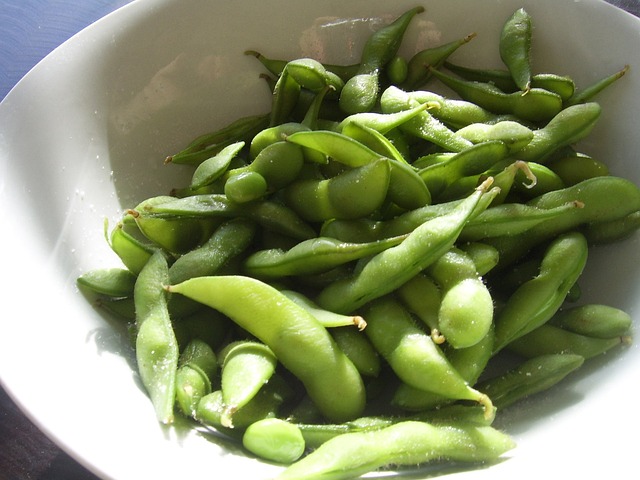In Part One of this article, we looked at why tyre sustainability has just moved up the agenda. If you haven’t got five minutes to read it, here’s the summary: the rise of heavier electric vehicles, forthcoming Euro 7 emission standards, and a growing awareness of microplastic pollution all mean that what our tyres are made out of is no longer a fringe issue.
All the major tyre companies are trying to respond to this, but it could be Goodyear that’s made a big breakthrough. Back in January 2023, they produced a demonstration tyre which they claim is made from 90% sustainable materials. Now, whether they can bring this to market is another question, but the demonstration at least shows what’s possible.
Let’s take a closer look — with a critical eye.
Tyres made from soybean oil – that’s got to be good, right?
Much of the press coverage of Goodyear’s 90% sustainable tyre focused on the use of soybean oil. According to Goodyear’ s figures, the demonstration model replaces 11 fluid ounces (0.325 litres) of the petroleum oil used in a typical tyre with soybean oil.
Now, most of us agree that we need to reduce the amount of oil we’re extracting from the ground. But soy products themselves have some environmental problems. Is Goodyear just swapping one environmentally damaging product for another?
The answer is probably that soybean is the lesser of two evils. Although soybean is linked to deforestation in countries like Brazil, the vast majority of soy is produced for animal feed: the impact from the tyre industry is likely to be tiny in comparison, especially as the oil itself is produced in surplus.
What about everything else in the tyre?
Tyres are hugely complex and made from dozens of compounds. As it turns out, the petroleum-based oil products in a typical tyre only account for 8% of its weight. So what else has Goodyear replaced to boost their demo’s eco-credentials? Quite a lot actually. Tyre Trade News spells them out in some detail, but here’s the summary:
- Overall, Goodyear has modified or replaced 17 different materials in 12 components of the tyre.
- More sustainably produced carbon black. The demo tyre’s carbo black is made from from methane, carbon dioxide, plant-based oil and end-of-life tyre pyrolysis oil feedstocks. Usually, it’s made from burning petroleum products.
- Silica in the tyre is produced from rice husk waste residue. This by-product of rice processing usually ends up in landfill.
- Polyester in the tyre cords is obtained from used plastic bottles.
- Petroleum-based resins are replaced with resins from pine trees.
- Bead wire and steel cords have a high perentage of recycled steel, produced using electric arc furnaces, which have a lower carbon footprint than blast-furnace-produced steel.
- Some of the mass balance polymers are produced from bio- and bio-circular feedstocks.
It looks like Goodyear has pulled out all the stops to produce something that addresses ecological concerns and reduces the micro-plastic waste we discussed in Part One.
That all sounds great, but is the tyre any good?
Sometimes, there’s a great big problem with more sustainable products: they don’t work as well as their more polluting cousins. For many years, that was the problem with electric vehicles: they were too slow, too range-limited, too badly made, to be a viable alternative to petrol or diesel. Does the same thing apply to eco tyres?
There are some more sustainable tyres on the market right now that seem to do just fine, but nothing quite like the demo tyre. All we have at the moment is Goodyear’s claims. Naturally, they’re talking up its motoring benefits. According to Goodyear’s CEO Rich Kramer, as reported in Yahoo News:
“As we look at soybean oil, it makes a tire more pliable in cold conditions and that gives it more grip,” Kramer explained. “And on rice husk ash, we use it in place of petro-based silica. And what that does for us is actually improves rolling resistance on the tread. So this is a way of actually moving to those bio-based materials and not giving up any performance, and in fact, in many cases, enhancing performance.”
A better performing tyre that’s more sustainable and reduces micro-plastic pollution? If they can get anything like that to market, we’re all in.
The BK Tyres blog carries news, views and information on tyres and related subjects. BK Tyres supplies and fits tyres throughout South Oxfordshire, including the communities of Abingdon, Didcot and Henley on Thames. As an independent, family run mobile provider, we provide exceptional levels of service and affordable prices. Contact us today.

